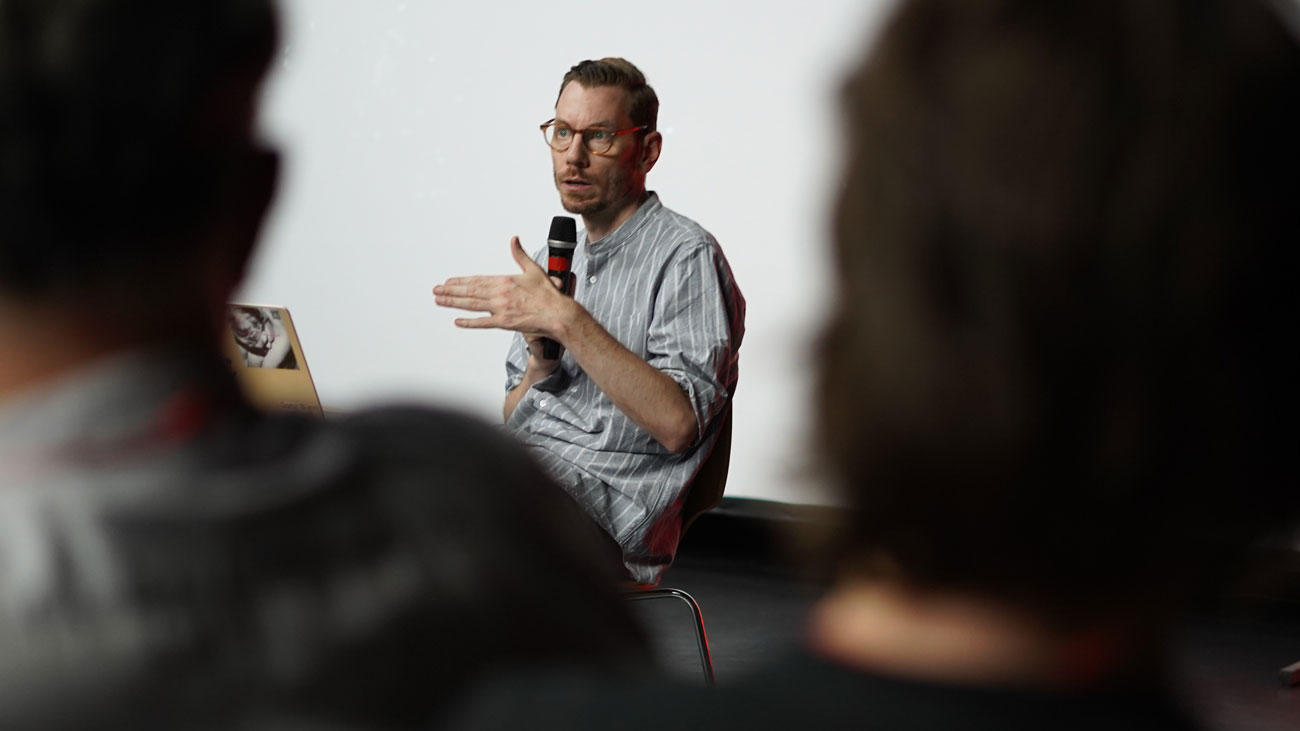
NAĐA LAPČEVIĆ, INTERACTION: SHORT DOCS FESTIVAL PRODUCER IN CONVERSATION WITH WOUTER JANSEN
I had the pleasure to chat to Wouter Jansen, the founder of the sales and festival distribution company Square Eyes based in Vienna.
With Square Eyes, Wouter represents bold, author-driven features and shorts, and collaborates closely with the filmmakers to devise bespoke festival distribution and sales strategies. This has resulted in a small catalogue of films premiering at prestigious festivals and winning multiple awards over the last few years like main prizes at Cannes, TIFF, Berlin, Locarno and Clermont-Ferrand.
He is an expert for Locarno Open Doors and First Cut Lab, and has been giving lectures at schools like Le Fresnoy, HEAD Geneva and Netherlands Film Academy. He has moderated as well as lead workshops at festivals like IDFA, True/False, Winterthur, VIS Vienna Shorts and others.
Wouter has also been a trusted tutor on our Doc Workshop for several years, and has inspired so many emerging filmmakers as well as provided vital support at this very delicate career stage. I wanted to know more about Wouter’s preferences when choosing films for his catalog, his remarks on the ever changing industry landscape and his approach to mentoring up and coming filmmakers.
When choosing a film for your slate, do you feel like you rely more on your instinct or rationale?
I want to say it’s a mix of both. As we choose films that are more challenging for the market, it’s more about intuition than rationale in a way, as we don’t look at who’s in the cast, is it a sellable topic etc. But that being said, I try to have films where I know there is some festival potential or we can position it in a way that some distributors might be interested in taking on the film. I think this for me is more about intuition, but that’s also something I have built over the past 15 years watching a lot of films and programming for festivals, so I have quite a strong feel for which film could work, and which wouldn’t.
But we don’t take on films that have already started their festival career or maybe premiered in a small festival, as that impacts what we can do with it. And we try to have a balance of different types of films within the catalogue of 6 films each year. So there the rationale also comes in.
Since you entered the world of sales and distribution, the industry has changed significantly – from the rise of the digital platforms to the habits of festivals and wider audiences. Which changes would you say are most significant since the start of your career?
I started focusing on sales in 2020, so I can’t say that I really experienced the “easy” days having started in the pandemic. But what I hear from others, and what I also notice myself, is that less and less films are being bought. For short films, the amount of television-spots that are available (so the number of films that can be bought) is constantly decreasing, with some TV channels completely stopping to acquire. With features, distributors take less and less risks as the audiences are not completely there, so for a slightly more challenging film in terms of marketing, it’s much harder to find distribution. Even when you have distribution support available ( money that goes to the distributor to support them with the release) it can still be very difficult.
Festivals are still a very important part of the film-ecosystem but also there you notice that budgets are shrinking, so less screening fees being paid or films being programmed. So it becomes harder and harder when you are a new filmmaker and your film didn’t go to an A-list festival, to find your place.
You have been a tutor within the Doc in Progress programme at Interaction, working with young authors developing their documentaries and preparing them for the festival distribution. What are the most common mistakes that young filmmakers make when they first step into the world of festival distribution, and what advice do you give them to avoid or overcome
them?
Don’t be afraid to make mistakes. You will mess up at some point, we still do it too, but it only gives you the knowledge to not do it again the next time. I know directors that just started playing in festivals, and then found out along the way that some bigger festivals were actually really interested in their films, but now they don’t have the premiere anymore. But in those cases you often see that this just gives them a relation with that programmer and then the next project might end up in that festival. You never know what festival is best for you, you can be in a big festival and feel totally lost and meet no-one, and you can go to a small regional festival, and suddenly meet your next producer or festival that wants your film.
Don’t let rejections get you down. It’s really part of the process. With our most successful film we get rejected 50% of the time, but it’s actually more usual that we get rejected 80% of the time. So 1 selection in every 5 submissions. Do make sure to submit to a good number of festivals, I always recommend around 30 to 50. That way you can really see how the film is being received. We have films where we got rejected by 20 festivals, before getting into the first one, but then still had a very strong festival run when the ball starts rolling.
